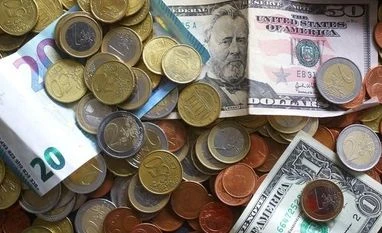Forex reserves have been rising with a total accretion of $4.389 billion to the kitty since July 14, 2017.
It had touched a record high of $393.448 billion after it rose by $581.1 million in the week to August 4, 2017.
More From This Section
"If the pace of foreign exchange reserves is similar to that of the past four weeks, the reserves would hit $400 billion by the week to September 8. Indeed, adjusted for forward positions, forex reserves are already at $407 billion," Morgan Stanley said in a note today.
The pace of forex accretion has been the strongest since 2015 and this has also been one of the strongest in Asia ex-Japan in the past 12 months, the report said.
The surge in the reserves is on account of high inflows from overseas investors.
On a 12-month trailing sum basis, foreign direct and institutional flows remained robust at $63 billion and $17 billion.
This robust inflow of capital coupled with weak credit off take (credit growth was 6.2 per cent as of July 21) has meant interbank liquidity remains in strong surplus mode of $42 billion, the report said.
It said as capital flows remain buoyant, this puts appreciation pressures on the currency and could lead to excess liquidity, which would create challenges for the Reserve Bank of India (RBI) to manage its monetary policy.
"The monetary policy will only take into account the impact of currency appreciation on inflation into its policy decision, rather than tackling currency rise per se," the report said.
The RBI has already intervened in the currency markets in both spot and forwards markets to the tune of $3 billion and $17 billion, respectively, as of June 2017.
Since then, the reserves have continued to rise, suggesting the RBI may have continued to accumulate dollars in forex reserves in July and August.
Since June this year, the RBI has had to withdraw liquidity by means of Rs 30,000 crore of open market operations sales but despite these withdrawals, call rates are still closer to the reverse repo rate.
"As the excess liquidity challenge looks set to persist, the RBI will need more tools to manage excess liquidity, such as the standing deposit facility which is still under consideration," the report said.
)